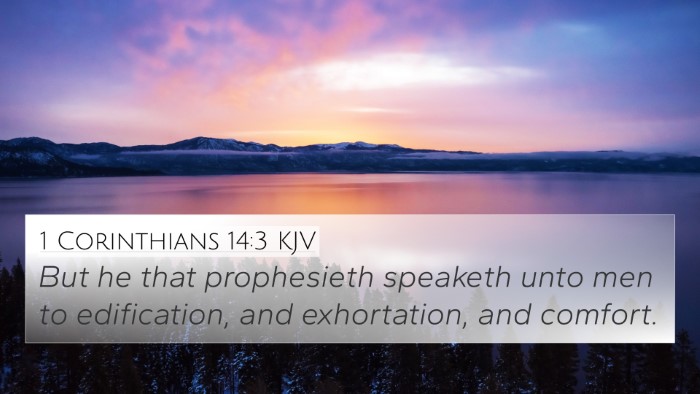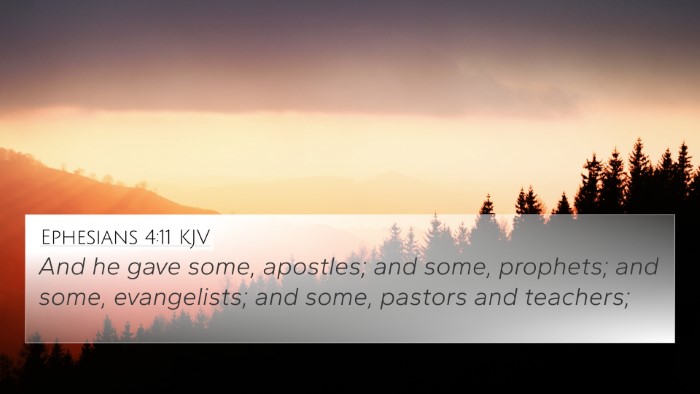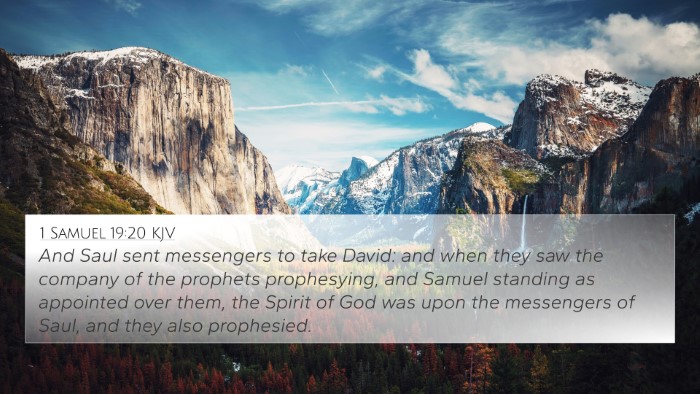Understanding 1 Thessalonians 5:20
Verse: "Do not despise prophecies."
Summary of Insights
This verse addresses a vital aspect of the Christian faith regarding the treatment of prophecies. Paul urges believers to regard prophecies with respect and discernment, acknowledging their role in guiding and informing God’s people.
Matthew Henry's Commentary
Henry emphasizes that prophecies are a means through which God communicates with His people. He notes that the directive not to despise prophecies implies a need for reverence and discernment regarding spiritual gifts. Prophecies are a vital part of the church's foundation and its growth, as they provide insights into God’s will.
Albert Barnes' Commentary
Barnes elaborates on the significance of prophecy within the church. He indicates that dismissing or disregarding prophecy can lead to a lack of spiritual guidance. He encourages believers to weigh prophetic messages carefully, holding on to what is good while discarding what does not align with Scripture.
Adam Clarke's Commentary
Clarke points out that the instruction to not despise prophecies also includes a warning against skepticism towards genuine prophetic utterances. He stresses the importance of testing prophecies to discern their authenticity, aligning this practice with the biblical principle of truth and accountability within the community of believers.
Cross-Referencing and Biblical Connections
This verse connects with several key themes throughout Scripture. Below are notable Bible verse cross-references that relate to 1 Thessalonians 5:20:
- 1 Corinthians 14:29: "Let two or three prophets speak, and let the others weigh what is said."
- Romans 12:6: "Having gifts that differ according to the grace given to us, let us use them..."
- Acts 21:9: "He had four unmarried daughters, who prophesied."
- 2 Peter 1:21: "For no prophecy was ever produced by the will of man, but men spoke from God as they were carried along by the Holy Spirit."
- 1 John 4:1: "Beloved, do not believe every spirit, but test the spirits to see whether they are from God..."
- Jeremiah 29:9: "For it is a lie that they are prophesying to you in my name; I did not send them, says the Lord."
- 1 Timothy 1:18: "This charge I entrust to you, Timothy, my child, in accordance with the prophecies previously made about you..."
Thematic Connections
Understanding the context and importance of prophecies can deepen the reader's faith and understanding of God's communication through His Spirit. Here are some thematic Bible verse connections that aid in a comparative analysis:
- Prophecy in the Old Testament: Deuteronomy 18:18, where God promises to raise up a prophet from among the people.
- How prophecy functions in the New Testament: Revelation 19:10, "For the testimony of Jesus is the spirit of prophecy."
- The role of the Holy Spirit: John 16:13, "When the Spirit of truth comes, he will guide you into all the truth..."
- Discernment in practice: 1 Thessalonians 5:21, "But test everything; hold fast what is good."
- The Church's response: Ephesians 4:11-12, where Paul mentions the gifts given for the building of the body of Christ, including prophets.
Importance of Testing Prophecies
1 Thessalonians 5:20 not only encourages respect for prophecies but also highlights the necessity of testing them. This call to careful scrutiny is foundational in establishing a healthy community where spiritual gifts can be exercised responsibly. A proper Bible cross-reference guide can assist believers in understanding how to evaluate prophetic messages effectively.
Conclusion
In summary, 1 Thessalonians 5:20 underscores the necessity of respecting prophecies while also encouraging believers to maintain discernment. The connections drawn from various scriptural texts reveal the vital role that prophetic messages play in faith, guidance, and community. Understanding this aspect of scripture invites believers to engage actively with spiritual gifts and to foster an environment that honors God’s communication through His Word.
Resources for Further Study
For those looking to delve deeper into Biblical texts and themes, utilizing a Bible concordance or exploring cross-referencing Bible study methods can be immensely beneficial. It allows for a richer understanding of how various scriptures interact and support one another in King David’s writings, the Prophets, and the teachings of Jesus and the Apostles.




















